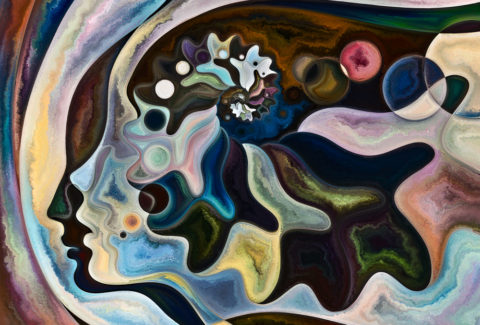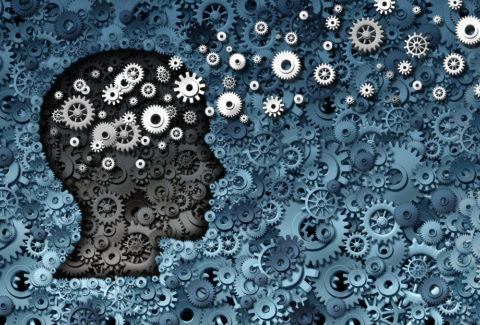The Why of Unconscious-based Interventions

The Why of Unconscious-based Interventions
Our strongest desire may be to be free[1]. We want freedom much more than we may realize. We fight for freedom. We pay for freedom. We do anything for freedom. Yet, the more we do, the less freedom we find ourselves to have. What a frustrating paradox.
Our strongest desire may be to be ourselves. We all want to be ourselves and wish to be ourselves. Yet, we often find ourselves with different “selves,” depending on where we are at the moment. We have a “self” at home when our family members are around. We have a different “self” at home when we have guests at the house. And we have a totally different “self” at home when we are all alone. Our separate “selves” appear so natural that they have become the “new normal” and despite our strong instinctual desire to be ourselves, our different separate “selves” have helped us survive the consequences of socialization. As a result, somehow, on some level, we prefer to hold on to them – those separate “selves,” – instead of finding out how we can become who we truly are.
Our strongest desire may be to follow our dreams[2]. But what dreams? Whose dreams? What types of dreams? At times we have no idea what we want. Other times we want so many things, we want “it all at once and now!” And yet at other times, we are totally confused. Still, at other times, we believe that we want nothing at all, that we have reached our maximum level of comfort, and that our life is good enough. Yet, part of us knows, that such a mindset is the result of resigning ourselves and as such, lowering our expectations. Sometimes we try to lower our expectations because we just don’t want to “be disappointed.” Nonetheless, we sometimes fail to realize that we do not really have a clue of what “being disappointed,” really means. Sometimes we are not realizing that what is really happening with our wants, with our wishes, or with our desires, is that we are simply trying to protect ourselves from the disappointment that comes with an apparent “failure.” However, the pain we are trying to avoid is nothing in comparison with the type of pain that results, eventually, from living a less fulfilling life.
Our strongest desire may be to follow our passion[3], to stand for what we believe, to go after what we want, and to come alive. However, we often also have this little voice in our heads saying, “Who do you think you are; What makes you think you can ever do this; Do you not remember where you came from?” We have an idea, and we know it can make a significant difference in our relationships, in our personal lives, in the community, in society, or in the world. However, we panic, we dismiss it, or, we let it slip away. Our thought, our inner monologue, our inner voice, starts talking, reminding us, telling us, “Wait, do you really think you would ever be able to do this; Don’t you think this is over your head?” We then start paying closer attention to our incessant thoughts and we start hearing: “You don’t have enough connections. You don’t know enough people, and you don’t have the money.” We continue to focus on these thoughts and we hear: “You aren’t white enough; You aren’t black enough; You aren’t tall enough; You are too short; You aren’t thin enough.” Of course, these thoughts never stop. They go on and on: “You aren’t the right gender; You aren’t the right sexual orientation? You aren’t the right….” And so on….
We are paralyzed and petrified by the thought that this is what others are saying to themselves when they see us. We are afraid that they are talking about us; judging us, and we make ourselves believe they are right. So, we stop ourselves from acting on our ideas. We stop ourselves from following that freedom, that desire, that passion, or that dream. We settle for less because we know we can’t do it anyway, so why even try? Why bother? We ask.
Here’s the thing. We often forget that living a life like this is living the life of someone else. We also tend to forget that the same people whose opinions we are petrified by are also trying to live their life wondering how they may be viewed in our eyes, or in the eyes of others. In other words, all of us worry about, “what will they say about me?” This alone may be the single most significant reason why we are to start by questioning the question: “What will they say?” We, and only we, can and must do something if we are to free ourselves. This, in a nutshell, is the power of working at the level of our unconscious mind.
Now, this concept of, “everyone is concerned about what everyone is or will be saying about them,” becomes evident over and over in family therapy, and couples’ therapy, where the children are worried about how they are viewed by their parents, while their parents, in their own way, are equally worried about how they are viewed by their children. This situation also occurs in the workplace, at school, at the store, at the beach, on the train, etc. It is just a mess. A world of insanity, which none of us seem to see a way out of. We are so used to it being the way things are, that we resign to it.
Yet, there is a way…
There is something we can do to help ourselves and start being happy, free, and alive. As you read this line, you, perhaps, are already telling yourself that it won’t work for you anyway. This is because you have likely been making use of a number of interventions, most of them being helpful, but none of them have truly eradicated the unconscious patterns of the mind. In other words, we may be making use of the Substitution Method[4], which is by far the best way to make any change. However, such a change does not eliminate the previously held unconscious pattern. Rather, it simply overrides it, it renders it dormant; or makes it weaker. However, being overridden, dormant, or weaker, does not mean being eradicated. As such, these previously held unconscious patterns of the mind are still present in the mind, though not active. Nonetheless, they still may become active the moment an opportunity presents itself. This is why even our very best Conscious-based Interventions need to continue to be used and practiced with much effort or the previously held unconscious mind will re-emerge. A common example of this is someone who relapses after having been sober for 28 years. Another example is someone who managed to lose 10, 20, 30, or 50 pounds and ends up gaining it back.
Does that mean that all the great Conscious-based Interventions that we have do not actually work? No, far from it. Many of our Conscious-based Interventions are essential as a first step to leading us to effectively use Unconscious-based Interventions. Unconscious-based Interventions require a level of psychological mindedness, and the Conscious-based Interventions help provide that and more. Conscious-based Interventions help bring individuals to a level of awareness where they are ready to start making use of the Unconscious-based Interventions.
Here you have, the WHY of the Unconscious-based Interventions. And how fortunate we are to have access to them, learn how to implement them, and help our clients do the same to end their suffering once and for all.
[1] Lammers, Joris, et al. “To have control over or to be free from others? The desire for power reflects a need for autonomy.” Personality and Social Psychology Bulletin 42.4 (2016): 498-512.
[2] Brown, Les. Live your dreams. Morrow, 1992.
[3] Brassfield, Shoshana. “Never let the passions be your guide: Descartes and the role of the passions.” British Journal for the History of Philosophy 20.3 (2012): 459-477.
[4] N., Sam M.S., “SUBSTITUTION,” in PsychologyDictionary.org, April 13, 2013, https://psychologydictionary.org/substitution/ (accessed May 15, 2022).








